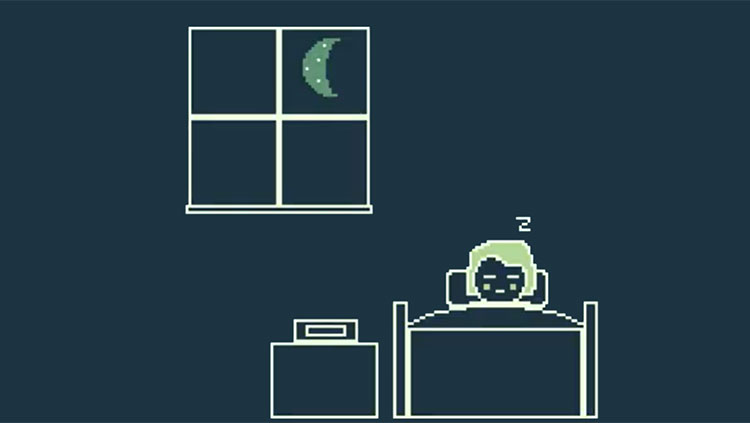Why Do Adolescents Go to Sleep Late?
- Published18 Sep 2019
- Source BrainFacts/SfN
The typical teen goes to bed late at night and is slow to rise in the morning — some might choose to sleep until noon if they didn’t have school, work, or other responsibilities. But neuroscience research shows teens’ nocturnal lifestyles are more than a personal preference: dramatic hormonal changes during puberty alter the brain circuits that regulate sleep.
This video is from the 2019 Brain Awareness Video Contest.
CONTENT PROVIDED BY
BrainFacts/SfN
Transcript
There are two main mechanisms that regulate sleep: sleep-wake homeostasis and the circadian rhythm. The sleep-wake homeostasis is the propensity of our body to chemically build a pressure to sleep throughout the day and a pressure to wake during the night. Therefore, the more time we are awake, the greater the pressure to fall asleep is and the more time we are asleep, the greater the pressure to wake up.
The circadian rhythm is the biological version of a clock inside our bodies and the suprachiasmatic nucleus, situated in the hypothalamus in the brain, is this master pacemaker. This pacemaker adjusts our body to the 24-hour light/dark cycle we live in, thanks to the electrical signals it receives from the retina in the eye. In the retina, there are receptors which are especially sensitive to light.
At night, the suprachiasmatic nucleus induces the release of melatonin, which makes us sleepy, and during the day, it suppresses its release which makes us feel awake. The circadian rhythm is the main mechanism controlling sleep and it’s independent of the number of hours we have been awake or
asleep.
However, these two mechanisms work in harmony with each other to facilitate an adequate rest and can be partially influenced by the demands of the adolescent life. Adolescence is a period marked by an increase of social activities with peers, academic demands, extracurricular activities, and an abuse of social media and electronic devices.
Coping with all of these while sleeping the nine hours that adolescents need is a real challenge. These demands involve a greater exposure to light, confusing our internal clock, which delays the sleep onset to adjust to the external world. However, evidence shows that these social factors fail to completely account for this delay. Adolescents seem to have a slower accumulation of sleep pressure after sleep deprivation and an internal clock more sensitive to light. Hormonal changes during puberty seem to contribute a great deal on this, reflecting a developing homeostatic and circadian system, which are delayed between one and two hours.
Interestingly, these changes are observed across cultures and in other mammals such as juvenile rats, mice, and macaques. The delay starts earlier in females as they tend to sexually mature before the males and is greater in older adolescents compared to younger adolescents. Moreover, the delay is not present in animals that have their gonads removed before puberty. Making an adolescent wake up at 7 a.m. to go to school or University is like forcing an adult to wake up at 5 a.m.
At night, circadian rhythms prepare our body to function during the day by slowly increasing body temperature, blood pressure, and releasing cortisol to increase our alertness. At 5 a.m. none of these steps have started. Our body is simply not ready to function and cope with society demands. Sleep deprivation can’t be compensated and has been linked to many health issues such as anxiety, depression, diabetes, and heart disease amongst others.
Lack of sleep has also a negative impact in attention, learning, and memory, and it has been linked to lower grades. Research has shown that delaying the starting time at school to 10 a.m. has a positive impact in health, happiness, and academic results. Universities such as Oxford and Harvard are encouraging schools to implement this starting time.
Also In Sleep
Trending
Popular articles on BrainFacts.org
















